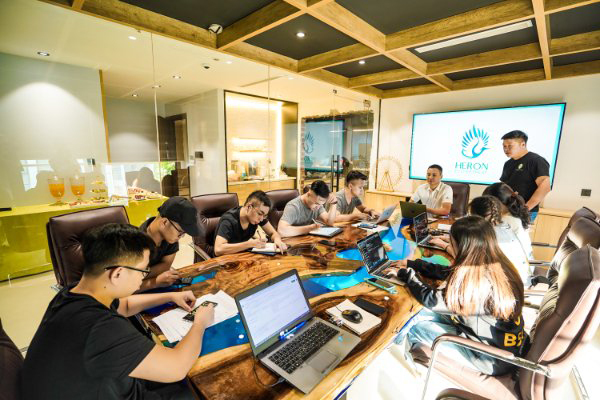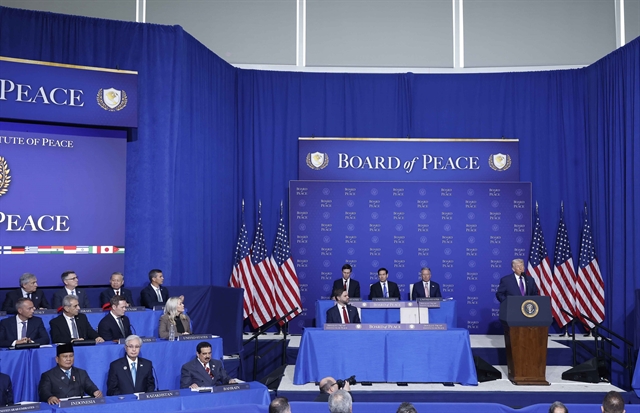 Economy
Economy
.jpg)
A report by Nextrans said that there are about 3,800 startups in Việt Nam, of which four are unicorns and 11 are valued at over US$100 million.

|
| LaunchZone is a Vietnamese incubator for innovative startups. It said some Vietnamese startups have positioned themselves among top 200 blockchain firms in the world. Photo vietnamnet.vn |
HÀ NỘI— Việt Nam is a rising star of Southeast Asia startup scene and will become the third-largest ecosystem in the region in 2022, according to venture fund Nextrans Việt Nam.
A report by Nextrans said that there were about 3,800 startups in Việt Nam, of which four were unicorns and 11 were valued at over US$100 million.
In 2021, investment poured into Vietnamese startups reached more than $1.3 billion. Fintech was the leading sector in terms of total deal value, with two deals worth over $100 million.
Notably, VNLife successfully raised more than $250 million in a Series B funding round in July. In December, Momo followed suit with an investment of $200 million.
After Fintech, e-commerce is the second most attractive sector to investors. Tiki made the largest contribution with a Series E funding round of $258 million led by AIA.
Undoubtedly, Việt Nam has emerged as a startup hub that is catching up with countries like Indonesia and Singapore, the report added.
Speaking at The National Startup Festival 2022, Phạm Tấn Công, president of Việt Nam Chamber of Commerce and Industry (VCCI), noted that Vietnamese people have a strong startup spirit.
The country was ranked 44th out of 132 countries in the Global Innovation Index and 59th out of 100 regarding the startup ecosystem in 2021. It also came third in the list of most-active startup ecosystems in Southeast Asia.
He believed such achievements could be attributed to the favourable government policies on startups in recent years.
“Vietnamese government has gone great lengths to improve the business environment in favour of startups”, Công said.
A report jointly prepared by National Startup Support Centre and BambuUp highlighted that Việt Nam was emerging as a dynamic economy and a development hub for innovative startups in Asia-Pacific.
Last year’s first nine months saw a record high number of $500K-3M deals in fundraising, 2.58 times higher than the same period of 2020.
There was a shift in the investment allocation ratio at different stages as well. The proportion of rounds $500K-3M and $3M-10M went up whereas investments in pre-seed and seed stages fell.
Nine-month Series A investments hit a record of 37 deals, the highest in years. As for Series B, the deals reached the largest average value ($13 million) since 2013.
The report also showed that the weakness facing most startups was reaching customers and generating revenues.
Stiff competition from direct and indirect competitors was the biggest concern for those involved in innovative activities.
Vietnamese startups are expecting the Government to step up investment in digital infrastructure to make business operations faster and more efficient.
The Government was also urged to supplement and clarify more detailed regulations to support domestic firms in terms of facilities, equipment and tax incentives, the report added.
At the national festival, the director of National Agency for Technology Entrepreneurship and Commercialisation Development Phạm Hồng Quất revealed that Việt Nam had more than 200 venture funds, 100 business promotion organisations and 130 universities and colleges that nurture innovations to date.
As the room for growth was still ample, Quất called for more favourable mechanisms that would pave the way for new innovative startups.
To this end, the Government was recommended to use public procurement as a stimulus to foster technology innovations.
The director also suggested a “startup visa” policy that would enable foreign entrepreneurs and startup founders to initiate their businesses in Việt Nam with ease.
As crowdfunding was becoming a norm in the world, this practice of fundraising should be piloted in Vietnamese startups to test its feasibility, Quyết added.
“Many countries in the region have introduced trading floors for the startups that are not eligible for Initial Public Offering. We should do likewise”, said the director.
Ivo Sieber, the Swiss ambassador to Việt Nam, stressed that a favourable legal framework was the key to the success of innovative startups. Education was another factor that would play a major role in startup incubation.
“Entrepreneurial spirit and startup spirit should be nurtured in the educational system”, said the Swiss ambassador.— VNS
.jpg)



